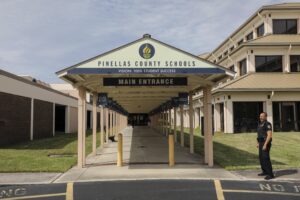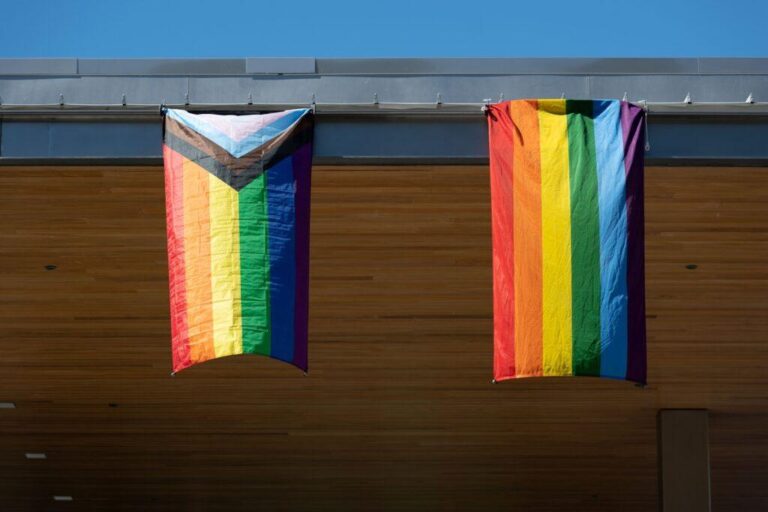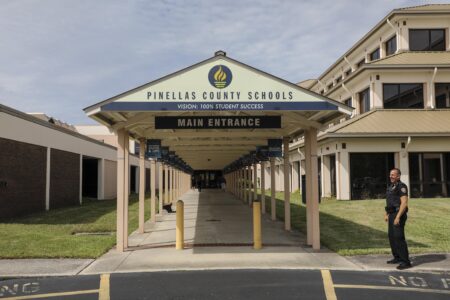Phoenix is set to welcome a new middle school specifically designed to support LGBTQ+ youth, funded through school voucher programs. The initiative aims to provide a safe and affirming educational environment for students often marginalized in traditional settings. Backed by state-funded vouchers, this pioneering school represents a significant development in Arizona’s educational landscape, sparking conversations about equity, inclusion, and the role of public funding in alternative schooling options.
Funding School Vouchers Drive Creation of New Middle School for LGBTQ+ Youth in Phoenix
In a pioneering initiative, Phoenix is set to welcome a new middle school dedicated exclusively to LGBTQ+ youth, financed through educational vouchers. This bold move aims to provide a safe, inclusive, and affirming environment where students can thrive academically and socially without fear of discrimination or exclusion. Advocates highlight the significance of school vouchers in enabling families seeking alternative education options that specifically cater to the unique needs of LGBTQ+ students.
Key features of the new institution include:
- Specialized curriculum focusing on diversity, equity, and inclusion
- Supportive counseling services addressing mental health and identity affirmation
- Community engagement programs designed to foster connection and activism
| Facility | Capacity | Opening Date |
|---|---|---|
| Phoenix Pride Academy | 150 students | August 2024 |
Curriculum and Support Services Designed to Foster Inclusivity and Emotional Wellbeing
The new middle school will implement a curriculum specifically tailored to reflect and affirm the experiences of LGBTQ+ youth, embracing diversity as a central pillar of education. Courses will incorporate LGBTQ+ history, literature, and social studies, ensuring students see their identities positively represented in academic content. Teachers will receive specialized training to foster inclusive classrooms where every student feels respected and safe, reinforcing a culture of empathy and understanding.
Complementing the academic approach, comprehensive support services will address students’ emotional wellbeing through accessible counseling, peer support groups, and wellness workshops. The school aims to create a nurturing environment that prioritizes mental health, offering resources for stress management, identity exploration, and family engagement. This integrated model leverages community partnerships to provide holistic care, positioning the school as a beacon of support and inclusivity in Phoenix.
| Support Service | Key Features | Objective |
|---|---|---|
| Counseling | Individual sessions, crisis intervention | Enhance emotional resilience and coping |
| Peer Groups | Safe sharing and mentorship | Build community and belonging |
| Workshops | Wellness, identity, and advocacy | Empower self-expression and awareness |
Community Reactions Highlight Support and Concerns Over New Educational Model
Reactions from local residents and advocacy groups have painted a complex picture surrounding the upcoming middle school dedicated to LGBTQ+ youth. Supporters emphasize the school’s potential to provide a safe and affirming environment, especially in a district where many students face bullying and exclusion. Advocates highlight benefits such as:
- Reduced dropout rates through inclusive education
- Improved mental health resources tailored for LGBTQ+ students
- Increased community awareness and acceptance
However, some parents and community members express apprehension about the school’s funding through vouchers and the implications for the broader public education system. Concerns mainly focus on the allocation of public funds and the potential for division in the traditionally public school landscape. The table below summarizes the key points from both sides:
| Supporters | Concerns |
|---|---|
| Focus on inclusive education | Use of public funds via vouchers |
| Safe space for marginalized youth | Impact on public school enrollment |
| Targeted mental health support | Potential community polarization |
Experts Recommend Steps for Ensuring Safe and Equitable Learning Environments
Leading educators and advocates emphasize the importance of crafting educational spaces where all students, particularly those from marginalized communities such as LGBTQ+ youth, can thrive without fear of discrimination or harassment. Experts insist that these environments be built on core principles of respect, inclusion, and safety. Essential steps recommended include:
- Implementing Comprehensive Anti-Bullying Policies: Clear guidelines and enforcement mechanisms to protect students from all forms of harassment.
- Providing Inclusive Curriculum: Educational materials that reflect diverse experiences and identities, ensuring representation matters.
- Training Staff on LGBTQ+ Sensitivity: Professional development aimed at fostering empathy, understanding, and appropriate responses to challenges faced by LGBTQ+ youth.
- Encouraging Student-Led Support Groups: Platforms where students can find community and amplify their voices in shaping school culture.
Alongside these approaches, experts highlight the importance of ongoing assessment and adaptation, ensuring policies evolve with the needs of students. The following table outlines a strategic framework schools can adopt for fostering safe and equitable learning atmospheres:
| Focus Area | Key Action | Expected Outcome |
|---|---|---|
| Policy Development | Enact explicit non-discrimination clauses | Reduced incidents of bias and bullying |
| Staff Training | Conduct quarterly sensitivity workshops | Increased staff readiness to support LGBTQ+ students |
| Curriculum Inclusion | Integrate LGBTQ+ history and issues in lesson plans | Enhanced student awareness and acceptance |
| Student Engagement | Support establishment of LGBTQ+ student alliances | Stronger peer support networks |
In Summary
As Phoenix prepares to welcome its first middle school dedicated exclusively to LGBTQ+ youth, questions about the role of school vouchers in funding such institutions continue to spark debate across the state. Advocates argue the new school will provide a safe and affirming environment for students often marginalized in traditional settings, while critics raise concerns about the allocation of public funds. The school’s opening marks a significant moment in Arizona’s ongoing discussion about educational choice, inclusivity, and the future of voucher programs.







